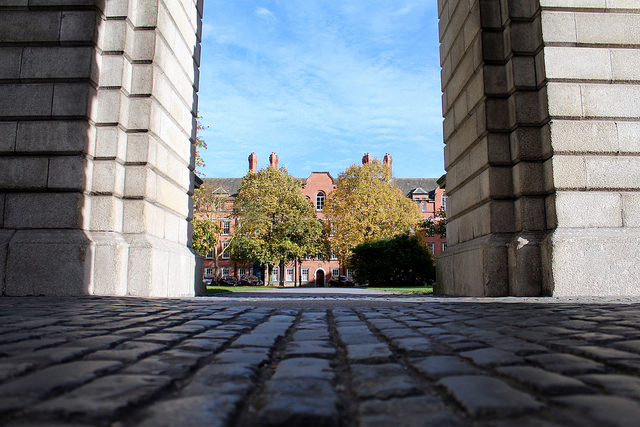Leaving certificate students could sit their exams in late summer and start college as late as November, under contingency plans currently under discussion in the Department of Education, the Irish Times is reporting.
Education stakeholders have in recent days discussed a range of plans if leaving certificate exams don’t start in June as a result of the coronavirus pandemic.
The Irish Times cites several people familiar with discussions as confirming that the option of delaying exams until summer is being “seriously examined”.
They say a decision on the leaving certificate should be made in the next two weeks.
Discussions are at an early stage, according to the Irish Times, but some third-level institutes have said they can delay the beginning of the year for new students by two months if it proves necessary.
Taoiseach Leo Varadkar this week said there is a “very good chance” that leaving certificate exams will proceed, encouraging students to keep studying despite the uncertain circumstances.
Schools, he said, could come back in May or June, adding that he hopes students would be able to sit the exams “in the normal way”.
Minister for Education Joe McHugh is working on contingency plans in the event that this doesn’t happen, he said.
“There are multiple conversations going on and everything is on the table – whatever happens, the system will need to ensure equity, be transparent and immune to corruption”, a senior figure familiar with discussions told the Irish Times.
Most of those involved in discussions, the Irish Times reportes, say they expect junior certificate exams will either be cancelled or deferred.
“Much of what happens will depend on the public health situation and how that unfolds – and no one can say for sure what will happen”, said one figure.
Colleges this week had their shutdown extended until April 19th at the earliest, after they were previously told to re-open on March 29th.
Last week, controversy erupted in Trinity after the College instructed student residents to vacate its accommodation.
Irish students were given 24 hours’ notice, while international students were told they should “aim to have left their Trinity accommodation” within 48 hours of the announcement.
The following day, this newspaper reported that many international students were scrambling to find a way home – with several reporting huge “stress and anxiety” and many hitting out at the College. One asked: “What the hell were they thinking?”
Over the following days, Trinity relaxed its instruction, advising that students could stay on campus if they faced homelessness, have the virus or are self-isolating, had a family member with the virus, had immigration or visa restrictions, had extremely limited internet connectivity in their home, or are conducting research on campus for a PhD.
These criteria were then extended further to include students whose relatives were immunocompromised and to students who face barriers to travel.







